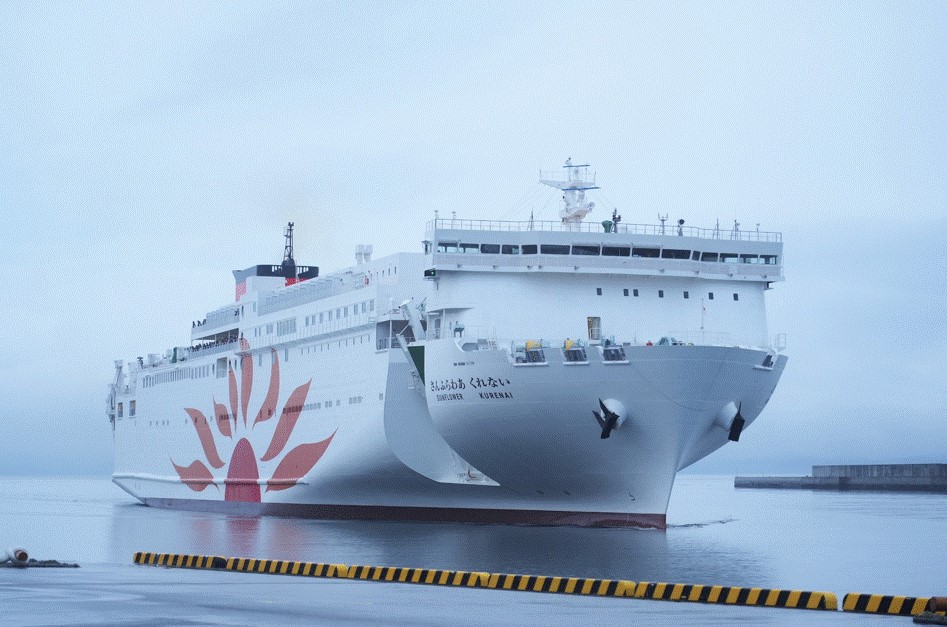Japan’s first LNG-powered ferry, Sunflower Kurenai, has entered service on the Osaka-Beppu route, according to shipping giant MOL.
Sunflower Kurenai, owned by MOL and operated by its group company Ferry Sunflower, has started serving the route between Sunflower Ferry Terminal and Beppu International Tourist Port as a replacement for the ferry Sunflower Ivory on January 13.
Compared to earlier ferries, the new ferry offers greater transport capacity and convenience for both cargo and passenger transport, MOL said.
In freight transportation, it has greater capacity to load trucks and provides a larger, more comfortable room for truck drivers, the firm said.
This is Japan’s first ferry to adopt a high-performance dual-fuel engine, which can run on both LNG and heavy fuel oil.
MOL expects the use of LNG fuel to reduce emissions of carbon dioxide (CO2) by about 25 percent, and sulfur oxide (SOx) by virtually 100 percent.
In December, MOL completed a bunkering operation with the LNG-fueled ferry to prepare it for trial operation ahead of the launch of the vessel’s commercial service in January.
Mitsubishi Shipbuilding, a part of Mitsubishi Heavy Industries, built both Sunflower Kurenai and its sister vessel Sunflower Murasaki.
MOL’s firm Ferry Sunflower will use both of these vessels on its Osaka-Beppu route and the second ship is expected to enter service in April.
Besides these ships, MOL ordered two more LNG-powered ferries at compatriot shipbuilder Naikai Zosen.
These 199.4 meters long LNG-powered ferries will join its unit MOL Ferry in 2025 and will replace two ships that MOL Ferry currently operates on the Oarai-Tomakomai route.

